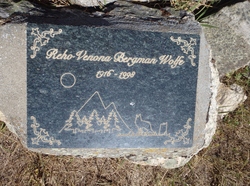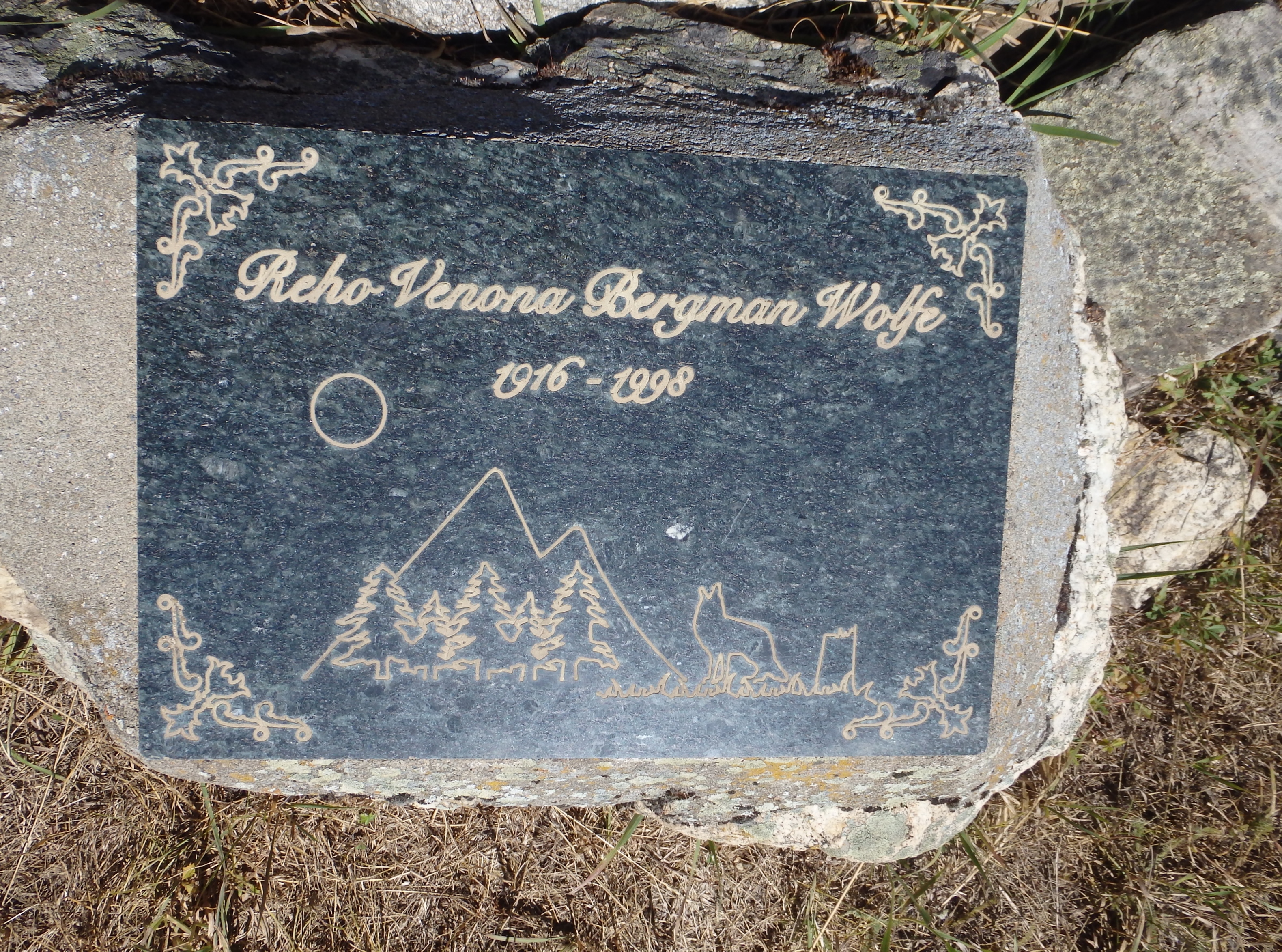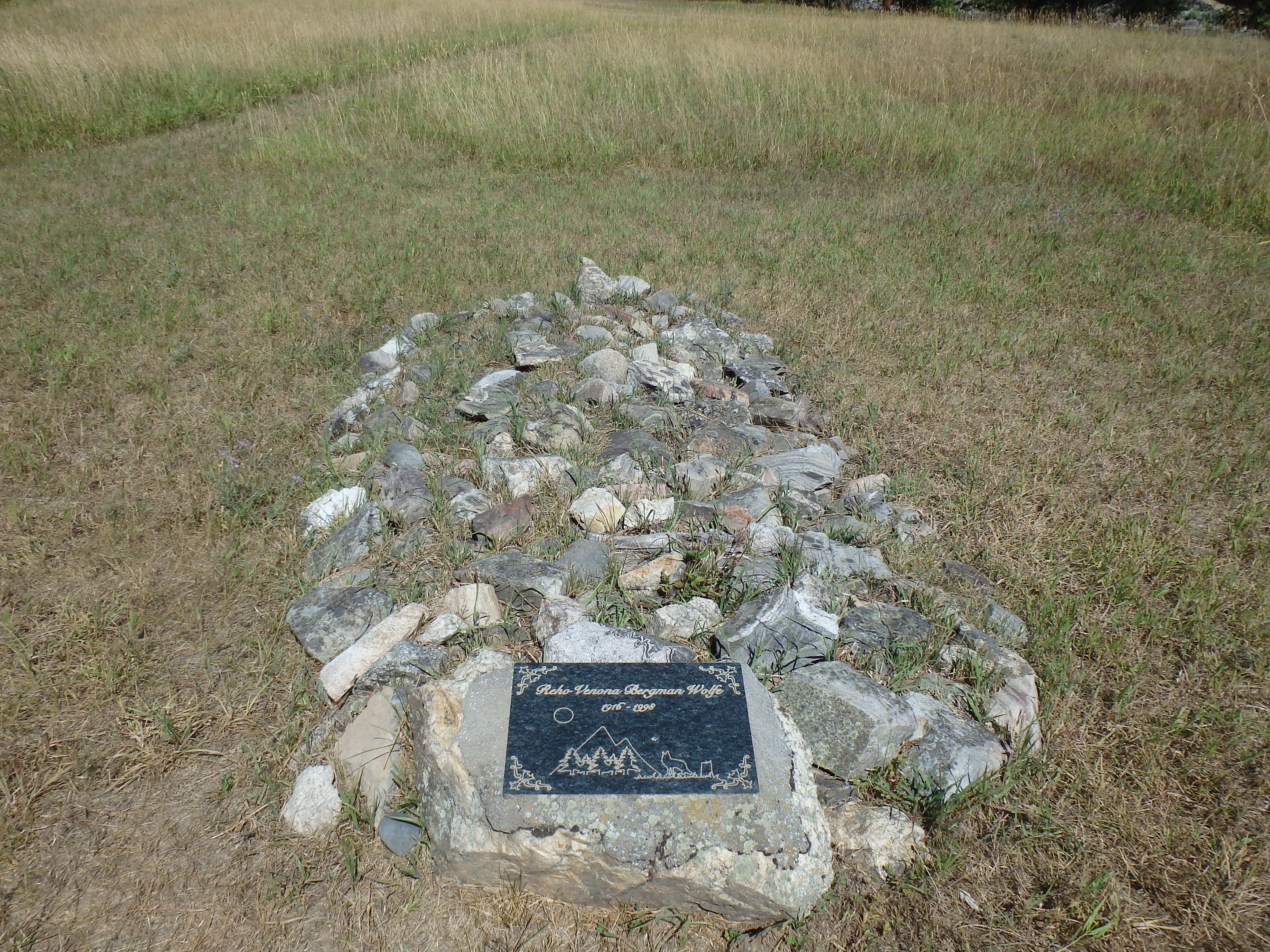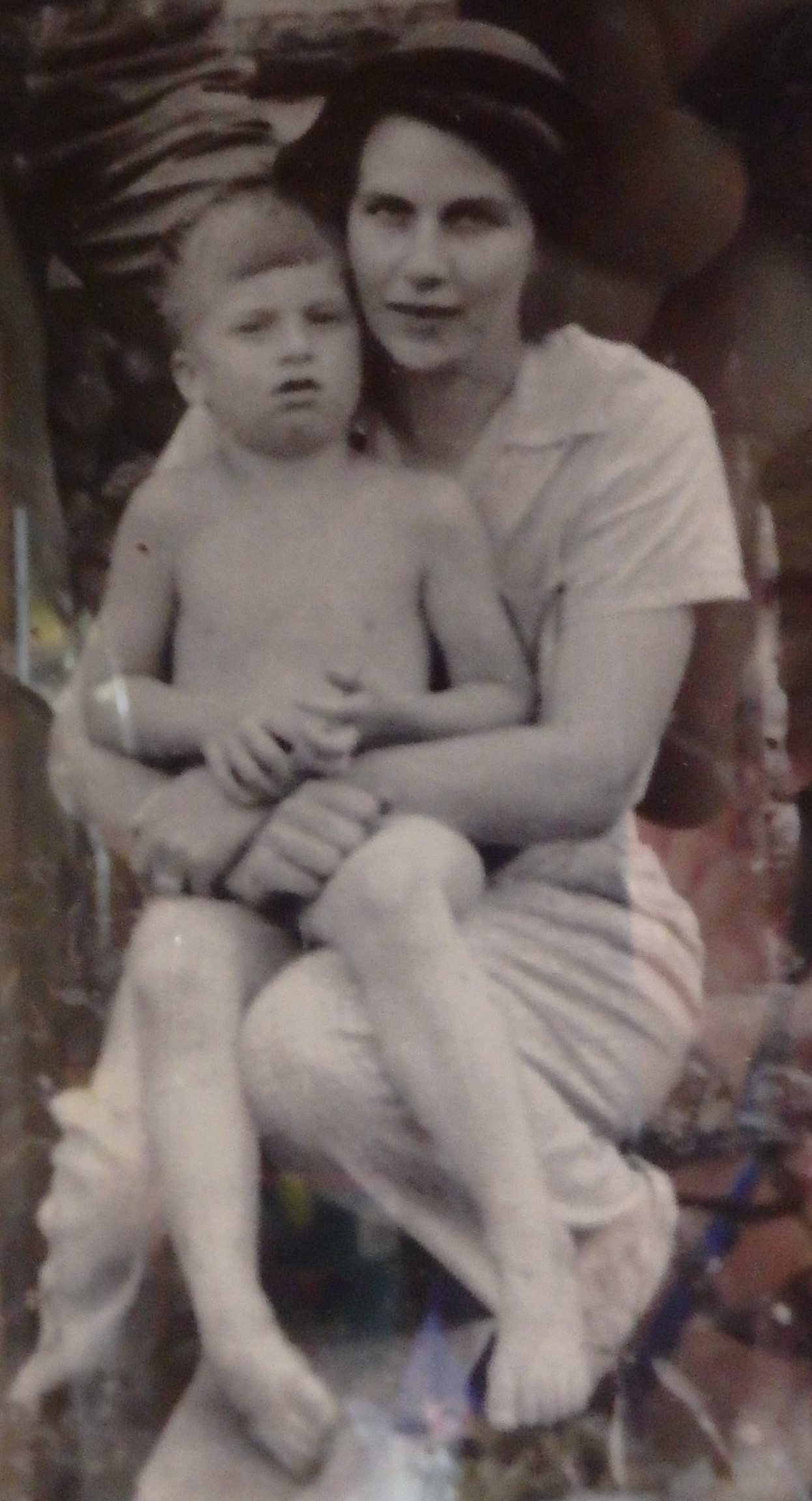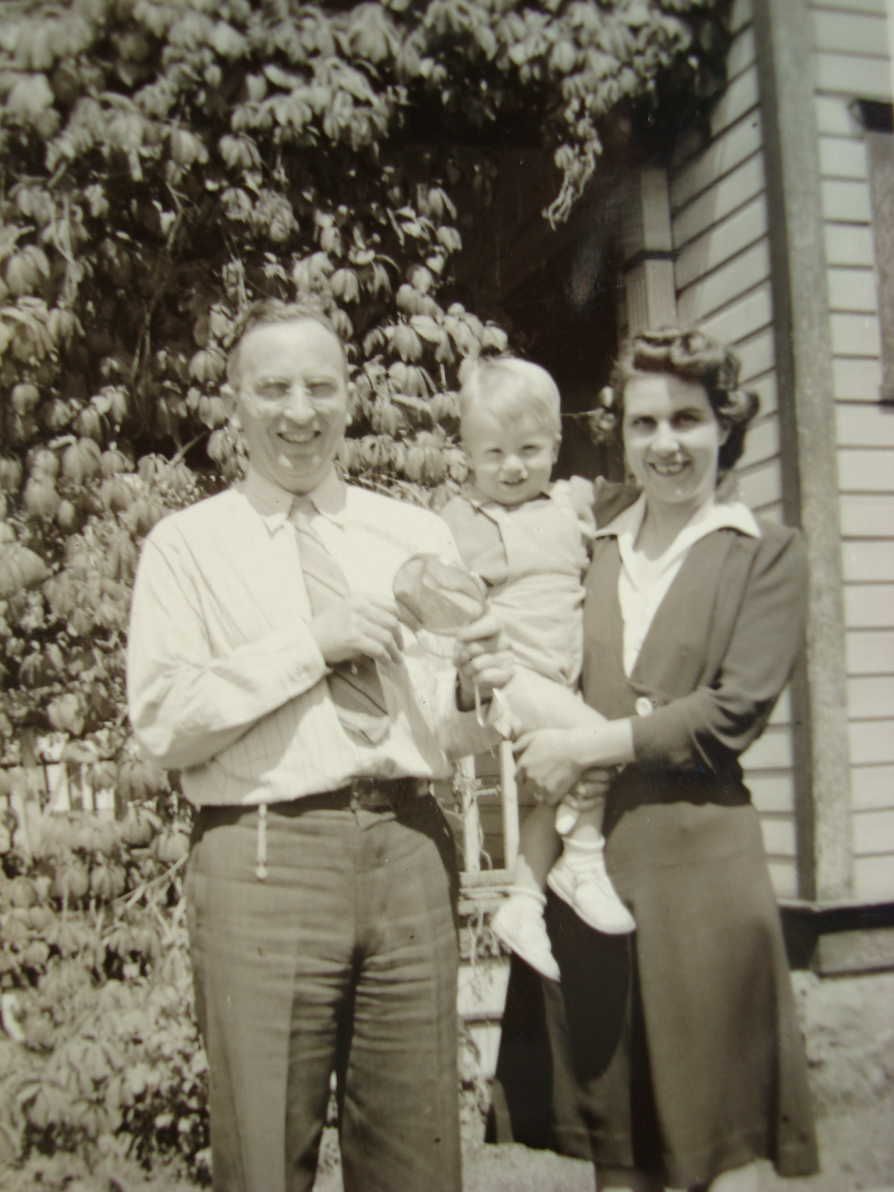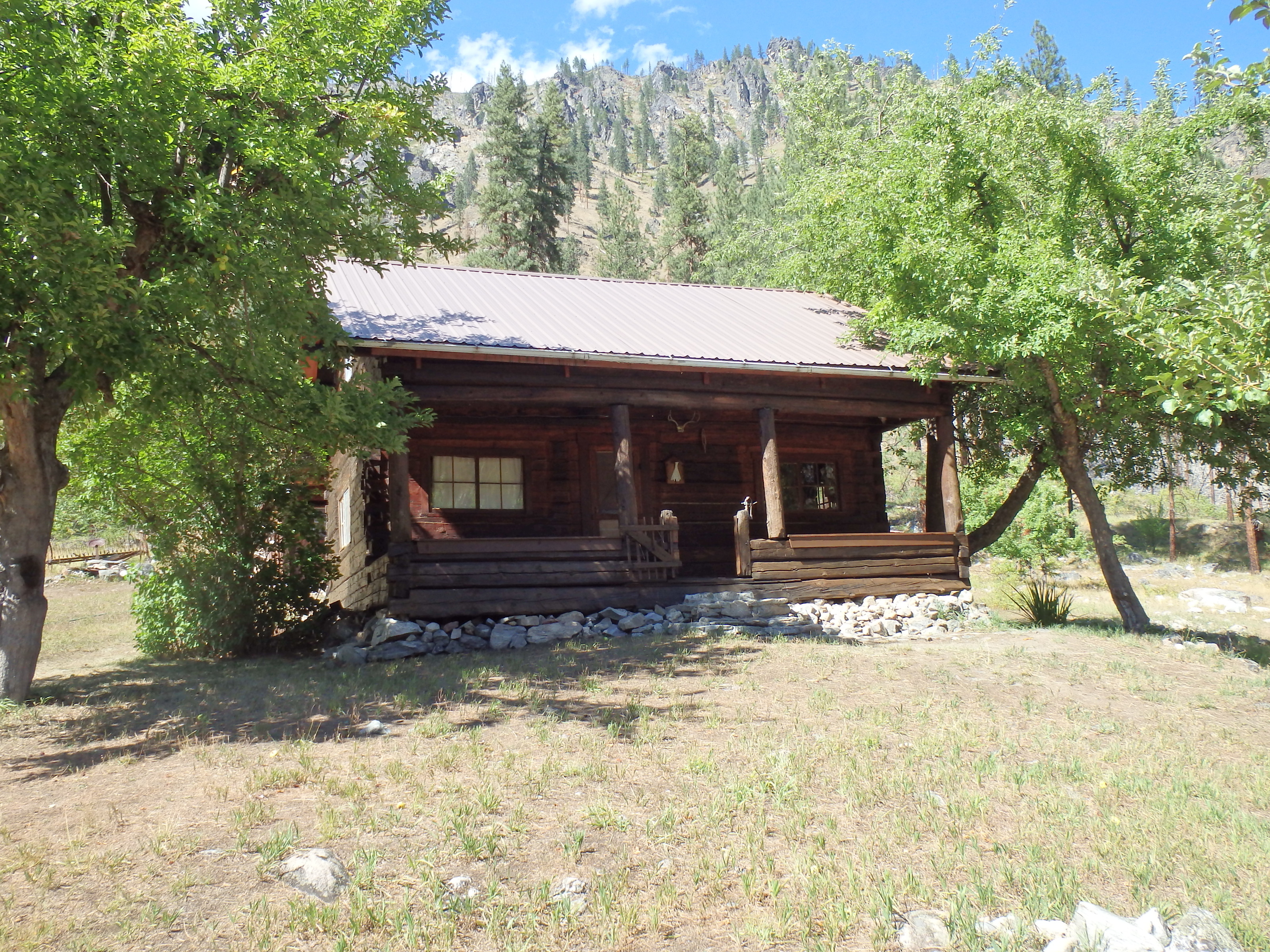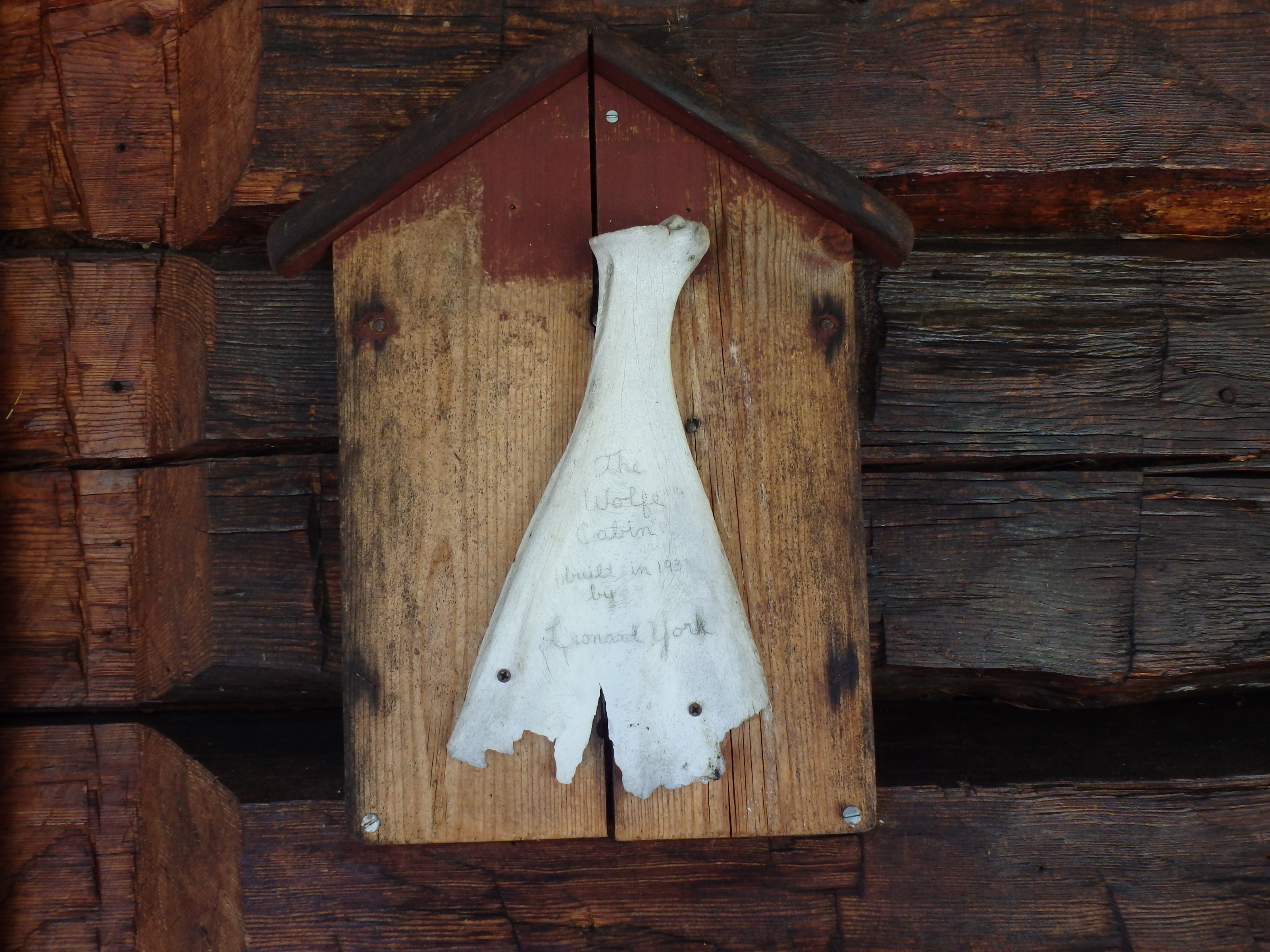Wolfe, a pioneer of the home school movement, died of causes related to age Thursday at her Rhett Creek cabin. She was 82.
She was born April 18, 1916, to John and Anna Fredlund Bergman at Denio, Ore.
She came to the Salmon River in 1945 with her husband, George. They spent their first winter at Crowfoot, north of Whitewater Ranch.
The following spring their cabin at Allison burned and they built a new cabin. Later they moved to Lewiston following the drowning of their son on Mallard Creek.
The marriage ended in divorce.
She returned to the Salmon River in 1957 in search of Morrow Hancock, who had advised her to file a claim on an abandoned mine at Gains Bar.
In 1958 she removed her seven children from the Lewiston public schools, taking them to a remote cabin. While the school district filed truancy charges, the Forest Service claimed she had no rights to the cabin. She fought both cases in court and the charges were dismissed.
She spent every possible moment at her wilderness home.
Reho is survived by two sons, David and John; four daughters, Carol, Sharon, Marjorie and Linda; a brother, Burton; a sister, Alga; 17 grandchildren; and nine great-grandchildren.
She was preceded in death by two sons, Norman Wolfe and Bill Wolfe.
Burial will be at her cabin at Rhett Creek along the Salmon River.
Lewiston Tribune July 7, 1998
===============================================
The last of her kind
Reho Wolfe loved the Salmon River country. She's buried there now, and her son tells the story of her adventurous -- and sometimes turbulent -- life as a wilderness river dweller.
On a warm, early July day in 1998, Reho Wolfe was buried in the Idaho wild, a stone's throw from the north bank of the River of No Return.
"It was an old-fashioned funeral," remembers her son, John Wolfe, at the snapshot of the ceremony pinched between thumb and forefinger.
"I was with her when she died. I carried her down and put her in the back of my truck," he says softly.
He called a friend in Lewiston to order a coffin. Two days later he, his sisters and brothers, a few river dwellers and a couple of Forest Service employees lowered the simple pine box into a rectangular hole Wolfe had dug himself.
"And we all covered her up," Wolfe, 52, of Viola, says.
The ceremony on the rugged bank near her cabin, about 200 miles from Lewiston in the Frank Church Wilderness, was a simple one. And it was a fitting one for an 82-year-old river pioneer like Reho.
But it did not speak to the long, rich history of her life and the Salmon River country she called home.
So John, who has worked most of his adult life for Bennett Lumber, wrote a book.
"It was quite a feat for me," says John, a high school dropout who got his GED in 2000. He confesses he's "not much" for even writing letters.
But the thought of losing forever the Wolfe family's history, one that not only pioneered Idaho's river country, but helped establish precedent for home-school education in Idaho, drove him on.
"Too many people forget their history," says John, a tall man with a quiet manner, lightly graying hair and a penchant for Western dress.
"You tend to think 'Oh, I'm not all that special.' But I thought we had a life a little different from the average.
"I wanted to write down how I saw my life in her world under these circumstances."
This year, almost four years to the date of his mother's death, John delivered the first copies of "Reho Wolfe: The End of a Salmon River Era," to bookstores.
Written, edited and published by Wolfe, the book is more a labor of love than literature -- a keepsake for the people who understand the call of the Salmon River country. But it gives a personal and provocative look into the life of the Wolfe family, and the others who called the banks of the River of No Return home.
Reho Wolfe, "was a rogue," John says. "She was tough as nails. If she made her mind up to do something, she did it.
"She could be brutal," John says frankly. And that physical and mental brutality left her children with more than a few bitter memories.
But it was also that spirit that carried her through a rough childhood and later drew her to a life on the river.
Reho Bergman was the daughter of an ever-truant gambling man and a tough, make-do mother. As a teen she courted with her husband-to-be, George Wolfe, in the Lochsa River country.
She fell in love twice in those days -- with him and the river country.
She graduated from Kamiah High School in 1935 at the top of her class, and married George. The couple moved to the river when World War II broke out, enjoying themselves and their life outside the world at war.
Extreme tragedies, triumphs and a bevy of wild river characters marked those early years on the Salmon.
George and Reho moved off the river to Lewiston in 1944.
In a few short weeks in the summer of that year, Reho had lost her father, who died at their cabin from old age, and her first born son, Norman, who was swept away by the Salmon and drowned in its powerful current.
It was years before they would return.
But when they did, says John, who was born in 1951, it was his first time living on the river. And the seemingly simple move to find obscurity cast the Wolfes into the limelight.
"She became unhappy with the school system," John remembers. "She was looking for a place to get away from society."
In the fall of 1958 Reho withdrew her seven children from the Lewiston Independent School District and moved back to the river. Her husband stayed in Lewiston to work.
Setting up a mining claim and moving into an abandoned 1930s-era cabin, Reho and the seven Wolfe children braved life in the wild in an 18-by-32-foot cabin with one room downstairs, an attic loft for sleeping and an outhouse.
The children learned traditional lessons via a correspondence course and life lessons from making a living from the land.
John, then 7, and his younger brother Bill, then 5, took advantage of their youth and studied their own curriculum.
"Bill and I spent most of the time running the mountains."
Reho believed her shy children, most of whom she said were floundering in the public school system, would get a better education at home with her.
Idaho disagreed.
Just a few weeks after settling in to the cabin, "The school board filed charges against her for taking us to the wild," John says.
Grangeville School District, which the family became a part of by moving to the river, filed criminal charges of "contributing to the delinquency of a minor through their habitual truancy from school," against Reho.
Dorsey Riggs, superintendent of the Idaho County School District at Grangeville, signed the charges. A warrant was issued for her arrest.
"Rumor has it that Mr. Riggs attempted to deliver the warrant himself," John writes. "But it seems that during the superintendent's hunt for Mom's whereabouts, those who should have known displayed total ignorance."
Local newspaper coverage grew to a visit from the Associated Press and national attention. After a lengthy battle the Idaho Supreme Court dismissed the case.
But it would be only one of many obstacles the family had to overcome.
In 1959 Reho and the children again moved off the river to be with George, who was working for the Camas Prairie Railroad, and to care for her ailing mother.
The family visited the river cabin as often as they could.
Later in life, Reho heard the call of the river again. She returned to retire there despite the objections of family and friends.
Wild as a young woman, she was even wilder in her old age.
"Mom could not sit still. She had to be going all the time, and you never knew where she was going to turn up or when."
Sometimes that meant answering the door at his home at 2 a.m.
"There she would be. She would come and go at all hours."
John says early on he gave up and decided to help his mother stay on the river she loved.
But Reho's story is not the only one to be told, John says.
"I was encouraged by the people on the river to write this.
"The reason I call it 'The End of a Salmon River Era' is because there is nobody left living on the river anymore," John says. "In the old days people just moved in and set up camp or took a vacant place. Now the only people are the rich that can afford the $1 and $2 million homes."
It is sad, he says, to see the old life fade away. But the river remains, as does his mother's memory and cabin. It is owned by the Forest Service now, but John says he eagerly awaits each season when the snows clear and he can visit his old home.
"The Salmon River, it -- well, once you have experienced it, it keeps drawing you back."
"Reho Wolfe: The End of a Salmon River Era" is available at And Books Too in Lewiston, The Book Shoppe in Grangeville, Pankey's Grocery in Kooskia, Excel Foods in Potlatch, Idaho, and Bookpeople in Moscow.
Lewiston Tribune January 17, 2003
Heather Frye
Wolfe, a pioneer of the home school movement, died of causes related to age Thursday at her Rhett Creek cabin. She was 82.
She was born April 18, 1916, to John and Anna Fredlund Bergman at Denio, Ore.
She came to the Salmon River in 1945 with her husband, George. They spent their first winter at Crowfoot, north of Whitewater Ranch.
The following spring their cabin at Allison burned and they built a new cabin. Later they moved to Lewiston following the drowning of their son on Mallard Creek.
The marriage ended in divorce.
She returned to the Salmon River in 1957 in search of Morrow Hancock, who had advised her to file a claim on an abandoned mine at Gains Bar.
In 1958 she removed her seven children from the Lewiston public schools, taking them to a remote cabin. While the school district filed truancy charges, the Forest Service claimed she had no rights to the cabin. She fought both cases in court and the charges were dismissed.
She spent every possible moment at her wilderness home.
Reho is survived by two sons, David and John; four daughters, Carol, Sharon, Marjorie and Linda; a brother, Burton; a sister, Alga; 17 grandchildren; and nine great-grandchildren.
She was preceded in death by two sons, Norman Wolfe and Bill Wolfe.
Burial will be at her cabin at Rhett Creek along the Salmon River.
Lewiston Tribune July 7, 1998
===============================================
The last of her kind
Reho Wolfe loved the Salmon River country. She's buried there now, and her son tells the story of her adventurous -- and sometimes turbulent -- life as a wilderness river dweller.
On a warm, early July day in 1998, Reho Wolfe was buried in the Idaho wild, a stone's throw from the north bank of the River of No Return.
"It was an old-fashioned funeral," remembers her son, John Wolfe, at the snapshot of the ceremony pinched between thumb and forefinger.
"I was with her when she died. I carried her down and put her in the back of my truck," he says softly.
He called a friend in Lewiston to order a coffin. Two days later he, his sisters and brothers, a few river dwellers and a couple of Forest Service employees lowered the simple pine box into a rectangular hole Wolfe had dug himself.
"And we all covered her up," Wolfe, 52, of Viola, says.
The ceremony on the rugged bank near her cabin, about 200 miles from Lewiston in the Frank Church Wilderness, was a simple one. And it was a fitting one for an 82-year-old river pioneer like Reho.
But it did not speak to the long, rich history of her life and the Salmon River country she called home.
So John, who has worked most of his adult life for Bennett Lumber, wrote a book.
"It was quite a feat for me," says John, a high school dropout who got his GED in 2000. He confesses he's "not much" for even writing letters.
But the thought of losing forever the Wolfe family's history, one that not only pioneered Idaho's river country, but helped establish precedent for home-school education in Idaho, drove him on.
"Too many people forget their history," says John, a tall man with a quiet manner, lightly graying hair and a penchant for Western dress.
"You tend to think 'Oh, I'm not all that special.' But I thought we had a life a little different from the average.
"I wanted to write down how I saw my life in her world under these circumstances."
This year, almost four years to the date of his mother's death, John delivered the first copies of "Reho Wolfe: The End of a Salmon River Era," to bookstores.
Written, edited and published by Wolfe, the book is more a labor of love than literature -- a keepsake for the people who understand the call of the Salmon River country. But it gives a personal and provocative look into the life of the Wolfe family, and the others who called the banks of the River of No Return home.
Reho Wolfe, "was a rogue," John says. "She was tough as nails. If she made her mind up to do something, she did it.
"She could be brutal," John says frankly. And that physical and mental brutality left her children with more than a few bitter memories.
But it was also that spirit that carried her through a rough childhood and later drew her to a life on the river.
Reho Bergman was the daughter of an ever-truant gambling man and a tough, make-do mother. As a teen she courted with her husband-to-be, George Wolfe, in the Lochsa River country.
She fell in love twice in those days -- with him and the river country.
She graduated from Kamiah High School in 1935 at the top of her class, and married George. The couple moved to the river when World War II broke out, enjoying themselves and their life outside the world at war.
Extreme tragedies, triumphs and a bevy of wild river characters marked those early years on the Salmon.
George and Reho moved off the river to Lewiston in 1944.
In a few short weeks in the summer of that year, Reho had lost her father, who died at their cabin from old age, and her first born son, Norman, who was swept away by the Salmon and drowned in its powerful current.
It was years before they would return.
But when they did, says John, who was born in 1951, it was his first time living on the river. And the seemingly simple move to find obscurity cast the Wolfes into the limelight.
"She became unhappy with the school system," John remembers. "She was looking for a place to get away from society."
In the fall of 1958 Reho withdrew her seven children from the Lewiston Independent School District and moved back to the river. Her husband stayed in Lewiston to work.
Setting up a mining claim and moving into an abandoned 1930s-era cabin, Reho and the seven Wolfe children braved life in the wild in an 18-by-32-foot cabin with one room downstairs, an attic loft for sleeping and an outhouse.
The children learned traditional lessons via a correspondence course and life lessons from making a living from the land.
John, then 7, and his younger brother Bill, then 5, took advantage of their youth and studied their own curriculum.
"Bill and I spent most of the time running the mountains."
Reho believed her shy children, most of whom she said were floundering in the public school system, would get a better education at home with her.
Idaho disagreed.
Just a few weeks after settling in to the cabin, "The school board filed charges against her for taking us to the wild," John says.
Grangeville School District, which the family became a part of by moving to the river, filed criminal charges of "contributing to the delinquency of a minor through their habitual truancy from school," against Reho.
Dorsey Riggs, superintendent of the Idaho County School District at Grangeville, signed the charges. A warrant was issued for her arrest.
"Rumor has it that Mr. Riggs attempted to deliver the warrant himself," John writes. "But it seems that during the superintendent's hunt for Mom's whereabouts, those who should have known displayed total ignorance."
Local newspaper coverage grew to a visit from the Associated Press and national attention. After a lengthy battle the Idaho Supreme Court dismissed the case.
But it would be only one of many obstacles the family had to overcome.
In 1959 Reho and the children again moved off the river to be with George, who was working for the Camas Prairie Railroad, and to care for her ailing mother.
The family visited the river cabin as often as they could.
Later in life, Reho heard the call of the river again. She returned to retire there despite the objections of family and friends.
Wild as a young woman, she was even wilder in her old age.
"Mom could not sit still. She had to be going all the time, and you never knew where she was going to turn up or when."
Sometimes that meant answering the door at his home at 2 a.m.
"There she would be. She would come and go at all hours."
John says early on he gave up and decided to help his mother stay on the river she loved.
But Reho's story is not the only one to be told, John says.
"I was encouraged by the people on the river to write this.
"The reason I call it 'The End of a Salmon River Era' is because there is nobody left living on the river anymore," John says. "In the old days people just moved in and set up camp or took a vacant place. Now the only people are the rich that can afford the $1 and $2 million homes."
It is sad, he says, to see the old life fade away. But the river remains, as does his mother's memory and cabin. It is owned by the Forest Service now, but John says he eagerly awaits each season when the snows clear and he can visit his old home.
"The Salmon River, it -- well, once you have experienced it, it keeps drawing you back."
"Reho Wolfe: The End of a Salmon River Era" is available at And Books Too in Lewiston, The Book Shoppe in Grangeville, Pankey's Grocery in Kooskia, Excel Foods in Potlatch, Idaho, and Bookpeople in Moscow.
Lewiston Tribune January 17, 2003
Heather Frye
Family Members
Sponsored by Ancestry
Advertisement
Advertisement
